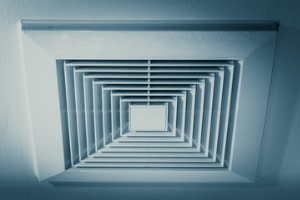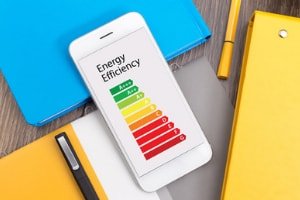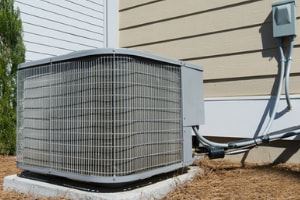Making sure you get your homework done prior to investing in an HVAC unit is paramount to ensuring your money is well-spent.
Most homeowners choose between a gas-powered central HVAC unit or an electric-powered unit. Understanding the differences and similarities between both will help you make the right choice for your money.
How Does The Duct System Work?

Both gas and electricity-operated units are forced air systems that push air through a network of ducts into rooms throughout the house.
Either one of these units is a welcomed addition to any home, and the newer, more-modern units can help you optimize your home for peak HVAC unit efficiency. This is when combined with other parts of the HVAC system.
Is There a Difference in HVAC Efficiency?

While both units do use electricity to some extent, a gas-powered unit relies primarily on natural gas and an electric unit runs entirely on electricity.
The concept of a gas-powered cooling system isn’t new; it was mainstream in the 1930s, but towards the ‘60s, electric appliances became more common thanks to efficient innovations.
Today, it’s still believed that electric systems are more effective, but the landscape is quickly changing. Gas AC's are becoming more common in large spaces used for retail or other businesses, and more companies are creating gas-powered units that can rival electric ones.
Some estimates place gas-powered HVAC units at using 30 to 40 percent less energy than their electric counterparts. One of the biggest factors in determining the efficiency of your cooling unit is the type of home you have.
If you own a large home with over 2,000 square feet, you might be better off with a gas-powered HVAC unit as they tend to do better with large spaces. However, for homes with multiple rooms, an electric HVAC unit gives you more options, such as using a ductless mini-split, when it comes to customizing the system to optimize efficiency.
The HVAC Unit Cost

What about the overall cost of each unit? You can expect a gas unit to be more expensive to install, but chances are you’ll save a bit more on repairs and longevity; gas HVAC units tend to last longer and typically need fewer repairs.
Even though you might find yourself needing repairs for your electric HVAC unit, it’ll be easier to find a company that can service it.
Many heating and cooling companies don’t have the tools or knowledge to service gas-powered systems. It’s also easier to make modifications to your electric system that allow you to improve performance and save even more.
While with an electric HVAC unit you can usually predict your average spending depending on the system, gas-powered central air units aren’t as easy to pin. Gas prices fluctuate, therefore the amount you’re spending is also liable to fluctuate just as often.
Energy Usage: Electric-Powered HVAC VS. Gas-Powered

The idea that electric-powered HVAC's are the more affordable alternative is changing.
In this day and age, we’re getting a better balance from both sides that gives us plenty to think about, when considering what to spend our money on.
Considering whether to get a gas-powered AC/ Heating or an electric one, is an important decision that takes multiple factors into account.
How big is your house? A large home, one over 2,000 square feet, would be better serviced by a gas-powered HVAC System. Their efficiency in rapidly cooling and heating large spaces has been proven and would be an ideal way to get a lasting investment that works.
Where do you live? The kind of winter and summer you experience will also affect which type of unit you should get. If you find yourself drastically changing temperatures and trying to rapidly cool a smaller home, an electric heater might be beneficial because of how easy it is to service these units.
Is your house newer or older? The way homes were built versus how they’re built now varies greatly. Some homes are made with materials that insulate more, some with materials that insulate less. How well your home stores heated and cooled air can also affect how efficient you need your heating system to be.
You’ll ultimately have to decide which system is right for you based on what your research tells you. Search online for what local experts say, find out more about average temperatures and building codes in your area. Talk to your friends and coworkers, share this blog with them and see what they’re doing in their home. The best way to make the right investment is by being well-informed.

